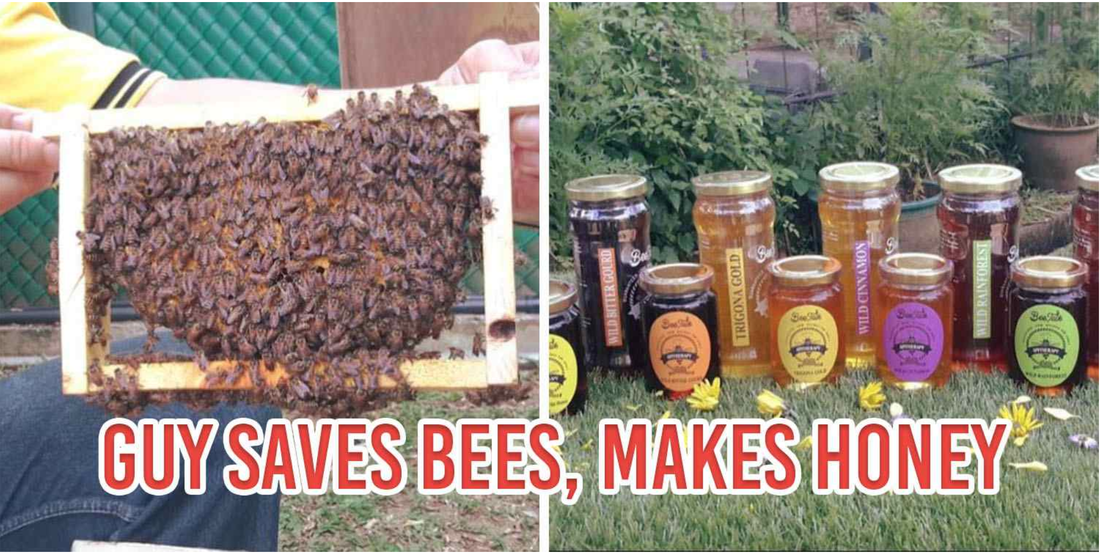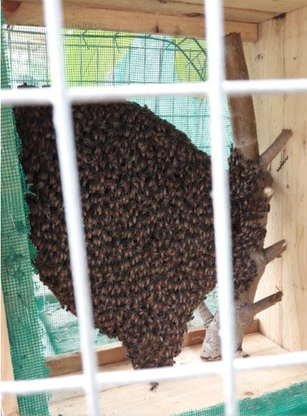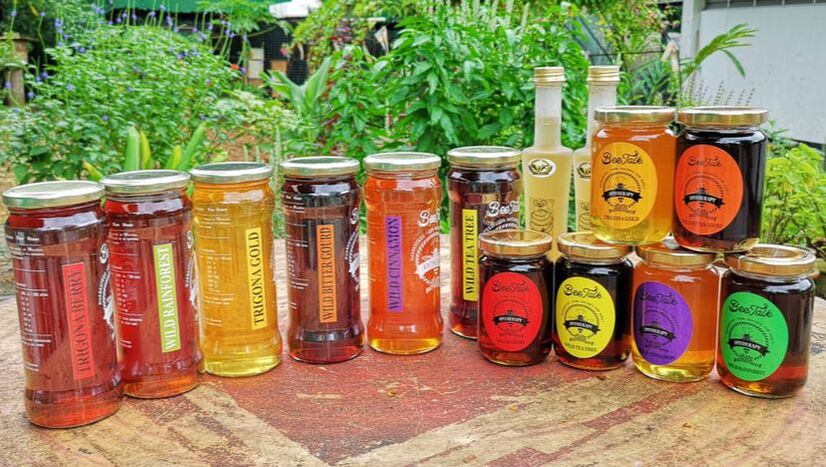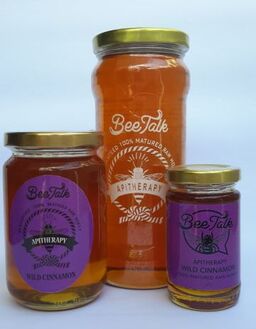LOCAL BEEKEEPER SAVES BEES FROM EXTERMINATORS BY RELOCATING HIVES & HARVESTING HONEY
By The Must Share News Team 3 May 2018, 2:26 pm (source)
One Man’s Efforts To Save Bees From Extermination By Relocating Their Hives In Singapore
Ever had to deal with a beehive in your home?
Chances are, you probably called for a commercial pest controller who used pesticides to exterminate the entire bee colony.
But Mr Xavier Tan wants you to consider a more humane method of tackling your unwanted guests.
Bee-whisperer
His method is to transfer the colony to a different location in Singapore, where it is then cultivated for honey.
Mr Tan first transfers just the queen bee and her larvae from their original location to a box.
The rest of the hive will follow suit to the box.
Then, he can bring the colony to more suitable parts of Singapore.
Here’s a heart-stopping image of a buzzing hive he successfully removed from Sentosa:
One Man’s Efforts To Save Bees From Extermination By Relocating Their Hives In Singapore
Ever had to deal with a beehive in your home?
Chances are, you probably called for a commercial pest controller who used pesticides to exterminate the entire bee colony.
But Mr Xavier Tan wants you to consider a more humane method of tackling your unwanted guests.
Bee-whisperer
His method is to transfer the colony to a different location in Singapore, where it is then cultivated for honey.
Mr Tan first transfers just the queen bee and her larvae from their original location to a box.
The rest of the hive will follow suit to the box.
Then, he can bring the colony to more suitable parts of Singapore.
Here’s a heart-stopping image of a buzzing hive he successfully removed from Sentosa:
Why bees? What sparked Mr Tan’s interest in pollinator’s conservation was an encounter with a seasoned beekeeper in Malaysia.
Subsequently, the clearing of forests in 2010 cemented his conviction that he needed to contribute to the conservation of hives.
Mr Tan also is acutely aware of the important ecological role that bees play.
In an interview with Today (29 April), Mr Tan paraphrased Albert Einstein’s famous quotation that should bees disappear, mankind would become extinct within the next four years.
Enter Nutrinest
Nutrinest is Mr Tan’s way to save our wild bees.
A one-man proprietorship which re-homes beehives, Nutrinest engages the community and harvests honey for sale from transplanted hives.
Community Outreach
Mr Tan attributes some of the hostile reactions to bees to the lack of awareness about bees in Singapore.
Through talks, hands-on activities in schools and selling Nutrinest’s products at stalls, he aims to familiarise Singaporeans with the insect.
Sweet honey
He has his own “Bee Talk” line of honey.
The natural, varied flavours stem from bees foraging primarily in different kinds of flowers at different locations.
Subsequently, the clearing of forests in 2010 cemented his conviction that he needed to contribute to the conservation of hives.
Mr Tan also is acutely aware of the important ecological role that bees play.
In an interview with Today (29 April), Mr Tan paraphrased Albert Einstein’s famous quotation that should bees disappear, mankind would become extinct within the next four years.
Enter Nutrinest
Nutrinest is Mr Tan’s way to save our wild bees.
A one-man proprietorship which re-homes beehives, Nutrinest engages the community and harvests honey for sale from transplanted hives.
Community Outreach
Mr Tan attributes some of the hostile reactions to bees to the lack of awareness about bees in Singapore.
Through talks, hands-on activities in schools and selling Nutrinest’s products at stalls, he aims to familiarise Singaporeans with the insect.
Sweet honey
He has his own “Bee Talk” line of honey.
The natural, varied flavours stem from bees foraging primarily in different kinds of flowers at different locations.
For instance, his Wild Cinnamon Honey is produced by bees that forage primarily from Cinnamon flowers
This is because the beehive is located under a Cinnamon tree in a forest in Malaysia.
This is because the beehive is located under a Cinnamon tree in a forest in Malaysia.
ECO garden
Mr Tan relocates most of the hives to Ashram, a halfway house.
Apart from sanctuary for transplanted bees, it aims to be the the first wholly sustainable ECO garden with a complete food chain cycle.
That means that volunteers at the ECO garden work everything from leaky pipes to chicken manure.
Now, if you encounter a bee situation, you know who to call.
Contact: Mr Xavier Tan
Phone: 9147 4065
Email: [email protected]
Are bees really such a big deal? Yeah, they don’t just produce honey.
In 2017, ABC News reported that bees pollinate approximately a third of the plants we consume.
That service is roughly worth US$168 billion (S$224 billion) per year globally.
What this all means is that there is more that Singapore can do to help out our stingy friends.
And the first step is to know more about bees.
Featured image from Nutrinest.
Mr Tan relocates most of the hives to Ashram, a halfway house.
Apart from sanctuary for transplanted bees, it aims to be the the first wholly sustainable ECO garden with a complete food chain cycle.
That means that volunteers at the ECO garden work everything from leaky pipes to chicken manure.
Now, if you encounter a bee situation, you know who to call.
Contact: Mr Xavier Tan
Phone: 9147 4065
Email: [email protected]
Are bees really such a big deal? Yeah, they don’t just produce honey.
In 2017, ABC News reported that bees pollinate approximately a third of the plants we consume.
That service is roughly worth US$168 billion (S$224 billion) per year globally.
What this all means is that there is more that Singapore can do to help out our stingy friends.
And the first step is to know more about bees.
Featured image from Nutrinest.




